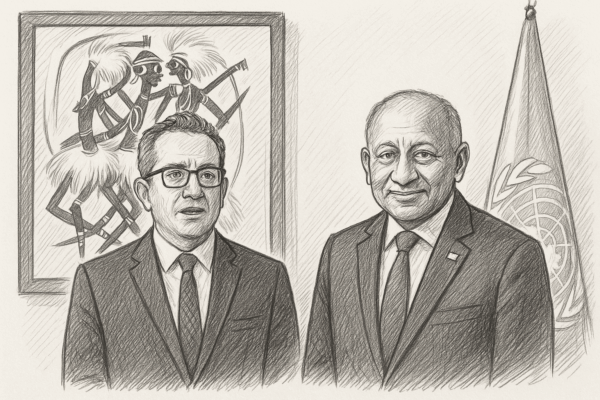By Rodrigue Fenelon Massala
Drama at UNESCO. The unexpected withdrawal of Mexican Gabriela Ilian Ramos Patino has turned the election for the director-general into a tense duel between Egyptian Khaled Ahmed El-Enany Ali Ezz, representing the Arab group, and Congolese Firmin Edouard Matoko, supported by Africa.
The stakes are high: institutional reform, more effective governance, but also a political symbol of Southern leadership capable of influencing traditional North-South balances. In this disrupted context, every vote counts and Latin America, deprived of a candidate, now becomes the battleground where the two camps concentrate their efforts.
El-Enany, a weakened favorite
Former Egyptian Minister of Antiquities, Khaled El-Enany had taken the lead by launching his campaign as early as 2022. With the expected support of the Arab group and Gulf countries, he appeared as the frontrunner. But this once solid lead is now eroding in the face of the rising power of his Congolese opponent.
Matoko, the outsider shaking up the game
Firmin Matoko, a seasoned UNESCO official, economist, and diplomat, has run an aggressive campaign in the past two months. Officially supported by the African Union and recently by the SADC with the backing of South Africa, he embodies a credible and unifying candidacy from within. His profile as a consensus builder, polyglot, and recognized for his multilateral expertise, is winning over an increasing number of delegations.
An open battle
With two months to go until the 44th General Conference scheduled in Samarkand, the outcome of the vote remains unpredictable. Between the ministerial experience and diplomatic strength of Khaled El-Enany, and the African and institutional momentum of Firmin Matoko, the duel promises to be fierce.
One certainty: the election, once considered a foregone conclusion, is now wide open.


